#Salgari
Text
Happy Birthday to Emilio Salgari (August 21, 1862 – April 25, 1911).
26 notes
·
View notes
Text
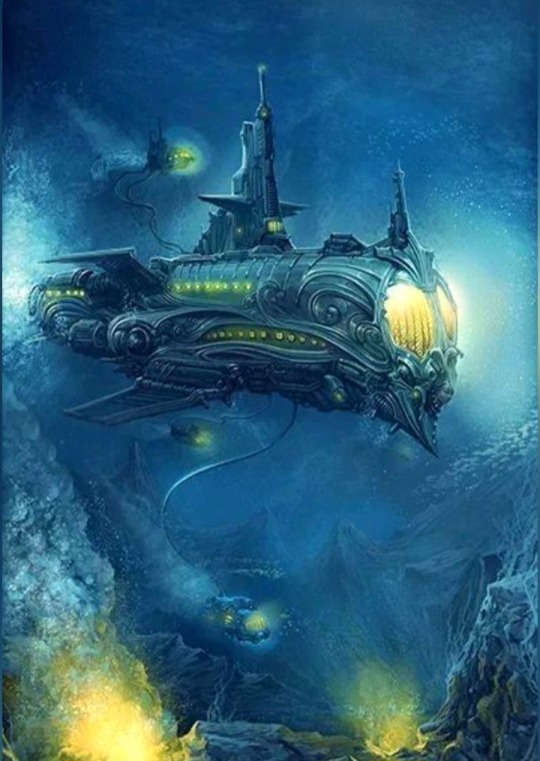
Nautilus !
#angolidiarteefantasia#fantasy#emilio salgari#Salgari#20000 leagues under the sea#20000 leghe sotto i mari#20000leghesottoimari#emiliosalgari#capitan nemo#romanzo#romanzi#libro#leggere libri#leggere#angolidicultura#culturaearte#culturaitaliana#culturaelibri#leggerelibri#nautilus
30 notes
·
View notes
Photo





Dogs in my neighborhood:
From the top: Dziga Zago Vertov, Nert, Erpz, Très Mal Nike, Ramiro Zeta.
Alla prima brush on the couch late last night.
6 notes
·
View notes
Link
#audiobook#audiolibro#biblioteca#c'è#che#d'onofrio#del#emilio#fantasmi#i#italiano#jacopo#la#luigi#mare#non#nord#pacioni#racconti#salgari
0 notes
Video
youtube
La mia top ten dei classici della letteratura italiana
Questa è stata senza dubbio la lista più difficile da scrivere, anche a causa del fatto che io sono un tantino esterofila e leggo più autori stranieri che non italiani, devo ammetterlo, perciò per questo elenco mi sono basata molto sulla mia formazione scolastica e ho dovuto inserire anche dei classici piuttosto moderni.
Inoltre ho scelto di non citare di nuovo qui i classici italiani che amo e che avevo già citato nella lista: La mia top ten dei classici della letteratura mondiale, che potete trovare qui: https://weirdesplinder.tumblr.com/post/729284916889698304/la-mia-top-ten-dei-classici-della-letteratura
Ma passiamoa lla lista odierna:
1. I promessi sposi, di Alessandro Manzoni
Link: https://amzn.to/3LMF1hU
Trama: Ambientato in Lombardia durante il dominio spagnolo tra 1628 e il 1630, anno di massima diffusione della peste, narra la storia degli umili Renzo e Lucia. Il loro matrimonio è ormai prossimo ma don Rodrigo, signorotto dei dintorni che desidera Lucia per sé, intralcia la felicità dei due giovani impedendo il matrimonio con la forza. «Questo matrimonio non s’ha da fare, né domani, né mai», dice uno dei bravi di don Rodrigo allo spaventatissimo don Abbondio. Tutti i personaggi si muovono all’interno di un contesto sociale e politico in cui gli umili sono vittime dei potenti ma in cui la fede nella divina Provvidenza, intesa come la mano di Dio che interviene nelle vicende umane, aiuta ad andare avanti permettendo di accettare le difficoltà.
2. La Divina Commedia, di Dante Alighieri
Link: https://amzn.to/46DunSO
Trama: Viaggio allegorico attraverso i mondi ultraterreni, rappresenta il percorso interiore del poeta verso la fede. L’opera è divisa in tre parti: Inferno, Purgatorio e Paradiso. Ad accompagnare Dante nella straordinaria discesa all’Inferno e nella salita al Purgatorio è il poeta latino Virgilio, che riveste il ruolo di guida spirituale. I personaggi che i due incontrano nei gironi infernali, appartengono non solo alla storia e alla mitologia, ma sono anche contemporanei dell’autore, che non esita a condannare i mali del tempo, e in particolare la corruzione di clero e papato. Per questo motivo La Divina Commedia è considerata anche un’opera politica. Nel Purgatorio, si trovano invece coloro che nel corso della vita compirono peccati più lievi; anche l’anima di Dante, nel corso della salita, si alleggerisce del peso delle sue colpe. Nel Paradiso Dante incontra l’amata Beatrice, che lo conduce attraverso i cieli, tra angeli, santi e beati, fino al cospetto di Dio, in un crescendo di luminosità e di purificazione
3. Il nome della rosa, di Umberto Eco
Link: https://amzn.to/46iL2uP
Trama: Ultima settimana del novembre 1327. Il novizio Adso da Melk accompagna in un'abbazia dell'alta Italia frate Guglielmo da Baskerville, incaricato di una sottile e imprecisa missione diplomatica. Ex inquisitore, amico di Guglielmo di Occam e di Marsilio da Padova, frate Guglielmo si trova a dover dipanare una serie di misteriosi delitti (sette in sette giorni, perpetrati nel chiuso della cinta abbaziale) che insanguinano una biblioteca labirintica e inaccessibile. Per risolvere il caso, Guglielmo dovrà decifrare indizi di ogni genere, dal comportamento dei santi a quello degli eretici, dalle scritture negromantiche al linguaggio delle erbe, da manoscritti in lingue ignote alle mosse diplomatiche degli uomini di potere. La soluzione arriverà, forse troppo tardi, in termini di giorni, forse troppo presto, in termini di secoli.
4. Piccolo mondo antico, di Antonio Fogazzaro
Link: https://amzn.to/46yaEDV
Trama: Ambientato sul lago di Lugano: ora calmo, ora tempestoso, idilliaco e impassibilmente crudele, quasi un protagonista. Il lago è anche testimone del sorgere dell’amore fra Luisa e Franco, un amore presto avversato a causa delle differenze sociali che dividono i due innamorati. Attorno a questo centro narrativo si dispongono tutte le altre figure (dalla nonna marchesa, fiera oppositrice dell’unione fra i due, al professor Gilardoni, ai tanti personaggi di un mondo di provincia nell’Italia risorgimentale) e i molteplici temi del romanzo: la scoperta della irriducibile diversità fra Luisa e Franco, la crisi del loro rapporto che si altera in un dissidio di natura religiosa, soprattutto dopo la morte atroce della figlia, la contesa sul testamento. Le vicende di natura patriottica con fughe e inseguimenti contribuiscono a dare vita e movimento a un ambiente provinciale altrimenti inerte, «segregato dal mondo grande».
5. Le tigri di Mompracem, di Emilio Salgari
Link: https://amzn.to/46gdKN6
Trama: Primo capitolo del ciclo indomalese di Emilio Salgari. E' qui che ci viene introdotta la splendida figura letteraria di Sandokan : giovane superstite allo sterminio della propria famiglia, sovrana nel Borneo, da parte degli invasori europei. Mosso da spirito di vendetta, accompagnato dai suoi fedeli tigrotti, vivrà rocambolesche e piratesche avventure per poi scoprire l'amore..
6. Uno, nessuno, centomila, di Pirandello
Link: https://amzn.to/3thJGSK
Trama: La storia narra di Vitangelo Moscarda, un uomo ordinario che ha ereditato un cospicuo patrimonio dal padre e vive di rendita. Un giorno la moglie Dida gli fa notare un piccolo difetto fisico di cui non si era mai accorto: il naso leggermente storto. Questa semplice e apparentemente innocua osservazione gli fa capire quanto gli altri abbiano una percezione di lui completamente diversa da quella che egli ha di se stesso. Ciò lo scaglierà in un vortice di annullamento umoristico e folle del proprio io, fino a diventare Uno, nessuno e centomila.
7. Arlecchino servitore di due padroni, di Carlo Goldoni
Link: https://amzn.to/3tpTYQw
Trama: La commedia si apre a Venezia in casa di Pantalone de’ Bisognosi, anziano mercante che sta assistendo alla promessa di matrimonio tra sua figlia, Clarice, e Silvio, figlio del Dottore Lombardi. I due sono innamorati ed è una fortuna che possano promettersi, dato che Federigo Rasponi, agiato torinese cui Clarice era destinata, è morto in una lite a causa della sorella di lui, Beatrice. Alla promessa assistono Smeraldina, giovane serva di Clarice a casa di Pantalone e Brighella, locandiere veneziano che fa da testimone. Inaspettatamente, nella scena irrompe Truffaldino, il giovane servo venuto per annunciare il suo padrone; si tratta proprio di Federigo Rasponi, venuto in Venezia per incontrare la sua futura sposa e per chiarire gli affari sulla dote della ragazza. In realtà, colui che si presenta in casa degli allibiti personaggi è Beatrice Rasponi, sorella del defunto in vesti da uomo, per poter andare in cerca di Florindo Aretusi, suo amante fuggito a Venezia in seguito al colpo mortale inferto di sua mano proprio a Federigo e che lei sta inseguendo.
8. Il castello dei destini incrociati, di Italo Calvino
Link: https://amzn.to/3ZEZOd3
Trama: Alcuni viandanti, attraversando un bosco, raggiungono un castello dove si fermano a banchettare; qui si avvedono di aver perso l'uso della parola, e decidono quindi di raccontarsi le reciproche avventure facendo ricorso ad un mazzo di tarocchi che l'oste ha messo a loro disposizione. Poggiando sul tavolo le varie carte in sequenza si ottengono diverse narrazioni per diverse disposizioni. Tutti i racconti sono legati gli uni agli altri dalle stesse carte già posate sul tavolo e s'intrecciano narrando eventi, luoghi e storie completamente distinti. La particolarità è che, narrata una storia, e interpretata in modo del tutto individuale da ciascuno dei protagonisti; è possibile sviare da un percorso narrativo per seguire nuove strade e nuovi filoni. È possibile che una stessa sequenza di carte rappresenti storie diverse a seconda che la si legga dall'inizio oppure dalla fine.
9. Cuore, di Edmondo De Amicis
Link: https://amzn.to/3rB2xrn
Trama: Diario immaginario di un bambino di quarta elementare, Cuore narra gli episodi lieti e tristi di un intero anno scolastico, inframmezzati da nove racconti esemplari in forma di dettato, tra cui i celeberrimi Piccola vedetta lombarda, Tamburino sardo, Dagli Appennini alle Ande.
10. La lunga vita di Marianna Ucrìa, di Dacia Maraini
Link: https://amzn.to/3PJ9yOX
Trama: Sicilia, prima metà del Settecento. Marianna Ucrìa è destinata dalla famiglia a sposare l'uomo che, da bambina, la violentò lasciandola muta e sorda per lo spavento. Ma la lettura aprirà uno spiraglio inatteso nella sua esistenza da reclusa, insegnandole a conoscere il mondo al di là dei confini ristretti della quotidianità.
Onorevoli menzioni:
Decamerone, di Giovanni Boccaccio
Pinocchio, di Collodi
I Beati Paoli, di Luigi Natoli
Il Gattopardo, di Giuseppe Tomasi di lampedusa
Sicuramente non avrò citato autori di classici della lettaratura italiana che molti di voi amano, perciò non esitate a segnalarmi i vostri preferiti nei commenti.
#youtube#deamicis#cuore#collodi#dantealighieri#classicidellaletteratura#salgari#italo calvino#carlo goldoni#antonio fogazzaro#manzoni
1 note
·
View note
Text
UN CLÁSICO PARA EL VERANO: EÇA DE QUEIROS
VIGENCIA DE EÇA DE QUEIRÓS
Una nueva edición de “El primo Basilio” rescata la figura y la obra del gran escritor portugués del XIX
Francisco R. Pastoriza
En Literatura se suele utilizar el calificativo decimonónico para desacreditar una obra, calificarla de anacrónica, situarla fuera de las corrientes contemporáneas, al margen de las vanguardias. Personalmente vuelvo con frecuencia a…
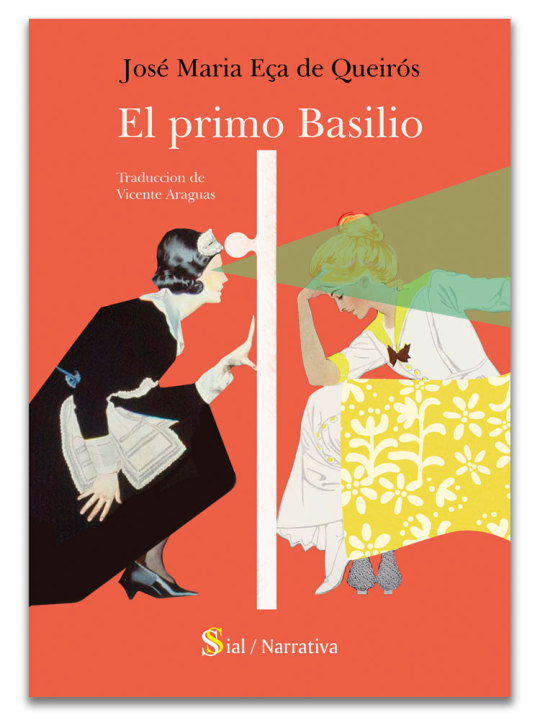
View On WordPress
#Balzac#Blasco Ibáñez#Clarín#Dickens#Dostoievski#Eça de Queiros#Flaubert#Galdós#Machado de Asís#Manzoni#Pardo Bazán#Pereda#Salgari#Tostoi#Vicente Araguas#Victor Hugo#Walter Scott#Zola
0 notes
Photo
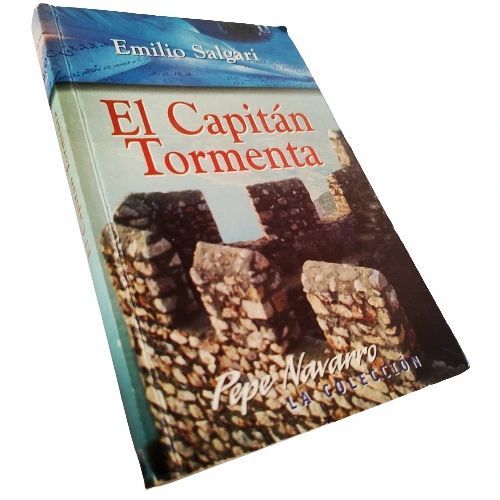
Emilio Salgari - El capitán Tormenta #salgari #emiliosalgari #elcapitantormenta #capitantormenta # #literaturainfantil #literaturajuvenil #aventura #noveladeaventura #noveladeaventuras #pepenavarro #loslibrosdefede https://www.instagram.com/p/Cl2tOzMO1J3/?igshid=NGJjMDIxMWI=
#salgari#emiliosalgari#elcapitantormenta#capitantormenta#literaturainfantil#literaturajuvenil#aventura#noveladeaventura#noveladeaventuras#pepenavarro#loslibrosdefede
1 note
·
View note
Text
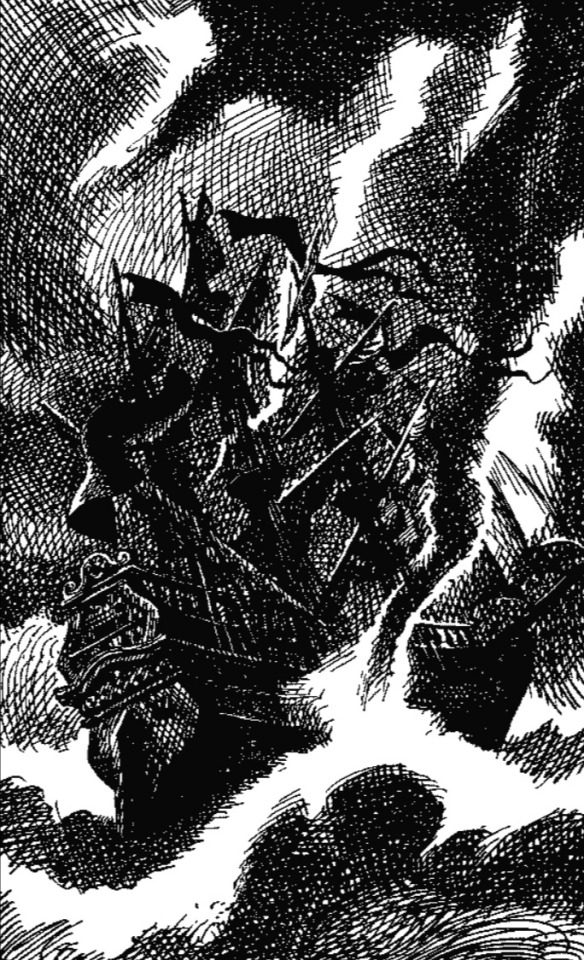
Illustration of 'Black Corsair' by Emilio Carlo Giuseppe Salgari, (1862 - 1911)
231 notes
·
View notes
Text
Round 1 Part 8 Poll 5
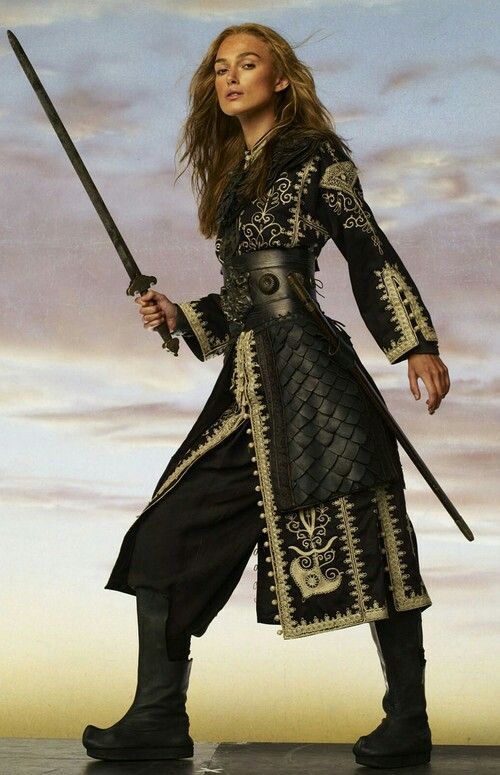

Propaganda
She becomes captain of the Empress
He's the captain of the Pearl of Labuan
#battle of the captains#tournament polls#round 1#elizabeth swann#potc fandom#potc#the pirates of the caribbean#pirates of the caribbean#sandokan#emilio salgari#the pirates of malaysia#pirates of malaysia#movieblr#bookblr#swashbuckler
45 notes
·
View notes
Text
" È consolante riandare alle proprie letture. Penso alle fughe nel fantastico quando si leggeva dei pirati della Malesia di Emilio Salgari, o Giulio Verne e i viaggi per ventimila leghe sotto i mari, o le memorabili avventure di Oliver Twist in Dickens, o l’Odissea che lessi da piccolo in una edizione illustrata a colori, e i favolosi volumi della «Scala d’oro» che la Utet stampava, divorati nel tepore della cucina. Daniel Pennac ricordava la sua lettura di Guerra e pace «che si svolse di notte, alla luce di una lampada tascabile, e sotto le coperte tirate su come una tenda in mezzo a un dormitorio di cinquanta sognatori, russatori e sussultatori»*. Walter Benjamin, in Infanzia berlinese, ricorda i romanzi di avventura della sua infanzia che gli venivano incontro come venti del Sud o tempeste di neve: «I paesi lontani che vi incontravo danzavano confidenzialmente l’uno intorno all’altro come fiocchi di neve. E poiché ciò che scorgiamo lontano attraverso la neve non ci invita fuori, ma dentro, cosí Babilonia, e Bagdad, Akka e l’Alaska, Tromsö e il Transvaal abitavano dentro di me»**.
Tutto ciò che l’umanità ha pensato, concretizzato, fantasticato, sentito e intuito sta nei libri. La finzione della poesia o della narrativa ci fa percepire il mondo presente e ricostruire il passato. È simulazione potente di vita vera e di emozioni. Grande consolazione è il sapere che tutto sta nei libri, nella loro presenza fisica. "
* D. PENNAC, Come un romanzo [1992], Feltrinelli, Milano 2000, p . 122.
** W. BENJAMIN, Infanzia berlinese [1950], Einaudi, Torino 1973, p. 78.
---------
Gian Luigi Beccaria, In contrattempo. Un elogio della lentezza, Einaudi (collana Vele), 2022. [Libro elettronico]
#letture#leggere#citazioni#saggistica#scritti saggistici#libri#Gian Luigi Beccaria#In contrattempo#Emilio Salgari#Odissea#I pirati della Malesia#Giulio Verne#Jules Verne#Ventimila leghe sotto i mari#Oliver Twist#charles dickens#Scala d’oro#Utet#Daniel Pennac#Guerra e pace#lev tolstoj#leo tolstoy#Walter Benjamin#Infanzia berlinese#romanzi di avventura#ricordi d'infanzia#poesia#narrativa#emozioni#vita
22 notes
·
View notes
Text
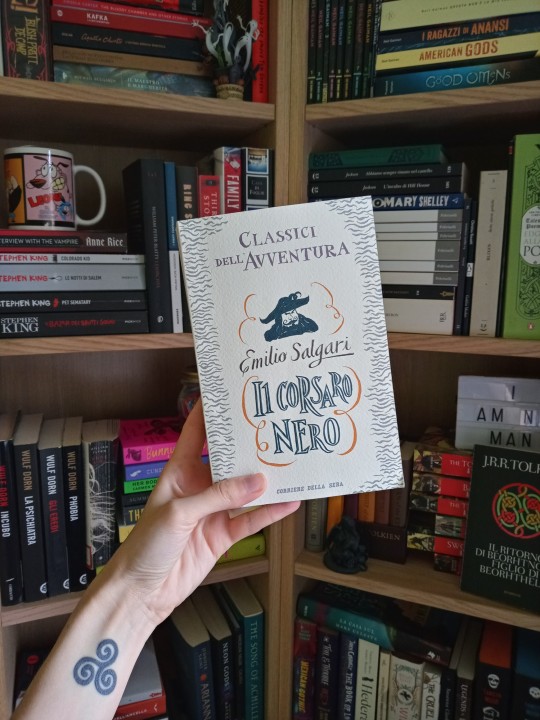
The Black Corsair by Emilio Salgari
This is, believe it or not, the first book I read by Salgari. He is one of the biggest classic adventure authors in Italy, and let me tell you the man was obessesed with pirates. So many of his book series are about pirates, which makes it even more unbeliavable that I never read one of his novels before. The Black Corsair is the first novel in his Corsairs of the Antilles series. The story is centered around the black corsair, of course, who is a feared pirate in the Caribbean. This pirate, the former Lord of Ventimiglia, is seeking revenge for the murder of his brothers. In fact the story's main topic is revenge. The black corsair swears he will avenge his brothers by killing the entire family of the governor of Maracaibo, his nemesis and the man who executed two of his brothers.
For some reason going into this I wasn't expecting the black corsair to be a positive character, I thought he would be a villain of some sort. Instead he is represented as this incredibly skilled and brave pirate, who is also very honorable. This is peak romanticization of the pirate figure, and let me tell you I am here for it. For some reason pirates have always been fascinating to me, and this novel plays a lot into this fascination for this type of characters. It's also set during the golden age of piracy, so you couldn't ask for more. The narration was a bit slow, but I listened to the audiobook which honestly didn't make it too bad, it's actually pretty entertaining. It's a classic that was first published in 1898, so you should keep it in mind obviously. But as I said it's really adventurous and entrtaining, it was the perfect audiobook choice for summer (so much so that I am listening to the sequel at the moment). Salgari was an insanely prolific author and I am very curious to read more of his books. Of course I will have to read at least the first Sandocan book as that is probably his most famous character (of which I remember very little from the animated series I would watch in the morning before school when I was a kid), but I read he wrote some of the first proto sci-fi in Italy and I am very intrigued by it. What makes things even more absurd is that this man didn't travel at all. He wrote adventures set in basically all continents all thanks to his library loans, which really shows you the power of reading, because the settings feel very authentic. Although the book is a bit slow I feel like it's a classic that could work for people who haven't read a lot of classics. It's adventurous nature makes it feel engaging and the writing wasn't too difficult to follow. As I said the audiobook version in my opinion was a winner so I would recommend that option if possible, but overall it was a nice classic to add to my read pile.
I read this book for the black and white cover prompt of the jumbo reading challenge (I know there two colored swirls but this is the closest I can get for this prompt with the books I own atm).
#2023 book#book#books#bookblr#booklr#the black corsair#il corsaro nero#emilio salgari#book cover#book rec#book recommendation#book review#reading#mine#the---hermit
20 notes
·
View notes
Text
Me: you know, it's so weird that Verne was pretty popular in the English speaking world, and yet Emilio Salgari, who was also big in the rest of Europe and Latin America, remained unknown and untranslated until very recently.
Emilio Salgari: so Sandokan is about this Malayan prince turned pirate because the British came, slaughtered his family and put a British man on the throne. The British man is evil and wicked, and while the Malayan prince is fearsome, he's just and even merciful sometimes. The first novel ends with his marrying a British lady, lady Marianna, who chooses to join him in his way of life.
Me: ah, yeah, that was a thing, yeah.
123 notes
·
View notes
Text
Ok so,
to startIt’s from this early summer that I’m thinking of take part to the Tumblr book club initiative and, because I’m italian, partecipate in it with a classic piece from Italian literature (I’m also well navigate in spanish and french lit but I want to play at home).
Because I’m a Master’s degree working students, anything that had nothing to do with with university/work/all the time left for me to go outside and touch some grass has always been postponed, but now I finally managed to pick up this idea and try to make it happen.
So still in June I brainstormed some ideas about lit classics all in public domain and if I not started yet is because I’m pretty indecise; I hypothesize that the newsletter on substrack could start next year and, accounting to the amount of material, I still have to decide if do it daily, weekly, monthly.
Considering that the idea of a Divine Comedy Weekly has already been taken by @lefthandedleague and if you’re interested you can find the link here, the other ideas that come to my mind are:
Pinocchio by Carlo Collodi, yes the original novel, there are actually 36 chapters so I could made it weekly, there’s a movie coming out each year about it and the novel is of course public domain, so still a pretty popular piece. Is children literature but still a smart novel and so easy to read in a newsletter framework. Finally, I have decided for this one, at least only to start and see how it goes. You can find the link here.
Decameron by Giovanni Boccaccio, this was actually my first idea lol but I debunked at first because organize a newsletter of 100 precise novels + interludes isn’t the easiest job and I’ll need help. If done weekly it could take approximately two years no stop to complete, if done daily I don’t know if it could be too much. In any case, Netflix is planning a series about it and it could be still possibile or at least interesting.
Michelangelo poems, ok this idea came to my mind only because I have two different editions of Michelangelo’s poems in ita/eng. It isn’t the greatest poetry imaginable, but both the editions do a great work to match the sonnets with Michelangelo’s artpieces, so I thinked about a substrack newsletter with each mail that have a poem + artpiece from the artist put together. The poems collected are roughly 300 (yeah he was pretty prolific), it could be done daily covering a year or weelky with 5 poems maybe (or less) for each mail.
The Facetious Nights by Giovanni Francesco Straparola or the Pentamerone by Giambattista Basile, for those who don’t know there are considered the first European storybooks to contain fairy-tales, I actually thinked about the collection by Italo Calvino at first, but there aren’t of public domain so idea cancelled. Both the collections contain old stile fairy tales with dark themes and some of them are an early version of worldwide famous tales, like Cinderella, Rapunzel or Puss in Boots. There are various novels so daily or weekly is pretty free the choice.
Some work by Emilio Salgari, to anyone who don’t know him, he is basically the Italian Jules Verne, in Italy some of his stories are national folklore, is pretty know in hispano-speaking countries but in the anglosphere he is basically nobody :( sad to consider that I grew up reading both Verne and Salgari at the same time. Daily or weekly I have to decide which work take for him, some pieces aged badly according to contemporary sensibilities and could be seen slighly problematic, others I think could be understood still today (Sandokan for example).
Other ideas that came to my mind but I’m :/ about it:
Vita by Benvenuto Cellini, he was a renaissance artist who knowed many ppl of that era like Catherine de’ Medici and this is his autopiography, they also made a lot of films about it. Still I don’t know really how much it could be interesting, still isn’t too long done it weekly.
Histoire de ma vie by Giacomo Casanova, same thing as above (+ I’m not the greatest fan of Casanova, I’m almost from the same city which he grew up and in Venice his myth is strong but still I’ve never been interested in his predatory sheningans).
I have some editions of Leopardi’s works at home including the Zibaldone and his letters translated in eng, but is too much for a newsletter so idea:cancelled.
Other epistolaries that comes to mind apart the Leopardi one are the one of Salvator Rosa (another painter from baroque who was actually pretty punk) or the one of Artemisia Gentileschi, it could be interesting but I have still to read it.
If someone from italian tumblr could have other ideas or take part to the project is free to collaborate :)
#book club#tumblr book club#classic lit#classic literature#italian lit#italian literature#Michelangelo#Emilio Salgari#Decameron#Giovanni Boccaccio#italian history#italian tag#pinocchio#carlo collodi#Tale of tales#tumblr italia#tumblr italy#italian tumblr#tumblrit#tumblrita#langblr
45 notes
·
View notes
Link
La campana dell'inglese - Emilio Salgari
#audiobook#audiolibro#avventura#biblioteca#c'è#campana#catrame#che#d'onofrio#dell'inglese#emilio#ita#italiano#jacopo#la#luigi#non#pacioni#papà#salgari
0 notes
Text




Los que habéis leído a Salgari seguro que os acordáis de "La perla de Labuan". Pues la isla de Labuan es así de guapa.
Y por supuesto, está en Malasia. Carol Andre era la perla.
8 notes
·
View notes
Text
I want a new animated series based on Emilio Salgari's novels about Sandokan, Yanez and other characters and went it more based on the novels but still making characters younger. I miss that Mondo TV animated series so much.
3 notes
·
View notes